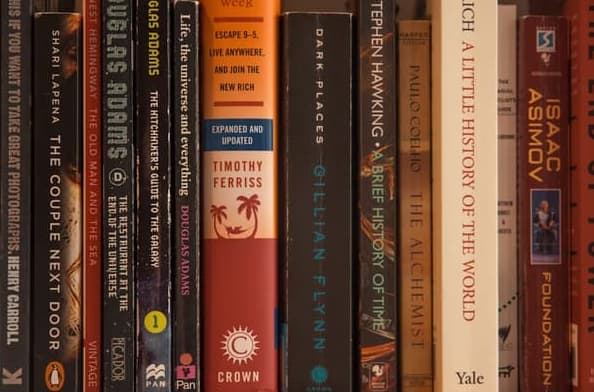For some, fiction is a school obligation, for some a way to kill time, and for others a whole world without which it is hard to imagine life. In the age of smartphones and endless streams of information, many people ask: why spend hours reading novels when there are movies, TV series or short videos? But it is books, unlike other art forms, that make us think more deeply and live through stories. Here are six good reasons why you should bring fiction back into your everyday life.
1. Fiction helps us to understand ourselves through others
When we read a novel, we become invisible witnesses of someone else’s life. We enter the mind of the hero, follow his thoughts, experience his mistakes and triumphs. Through this we learn to better understand our own emotions.
For example, when reading Dostoevsky, it is impossible not to think about the inner contradictions of man, about how shaky the line between good and evil can be. And in Remarque’s works we see how fragile human life is and how important it is to appreciate simple moments.
Such “living other people’s lives” helps us to understand ourselves. Sometimes one phrase or scene in a book makes us reconsider our own actions, understand what is troubling us inside, and find answers that we rarely formulate in everyday life.
2. Reading develops empathy and social skills
Modern psychology confirms: fiction books make us more empathetic. When we immerse ourselves in the story, our brain activates the same zones as when we communicate with people in real life. This is a kind of “training” – we learn to put ourselves in the other person’s shoes, to understand the motives behind their actions, even if they are far from ours.
In real life, this is reflected in the fact that it becomes easier to listen, to support and not to judge. The reader is a person who is able to see more nuances than just “black” and “white”.
Classic and modern literature abounds with such examples: be it the fate of Anna Karenina or the story of a teenager in the novels of John Green. Each book helps to build an “emotional map” within us, which then helps us to communicate better with friends, colleagues and relatives.
3. Books reduce stress and improve sleep
Reading is not only entertainment but also an effective way to take care of your mental health. Researchers from the University of Sussex proved that just six minutes of focused reading can reduce stress levels by almost 70%. This makes books one of the most accessible and natural forms of relaxation.
The main pros of fiction for relaxation:
- Quick release of tension — while reading, breathing gradually becomes smoother, the heartbeat slows down, and muscle tension decreases. This effect is comparable to meditation or listening to calm music, but has the added benefit of engaging the imagination.
- Alternative to gadgets — unlike social networks, news feeds, or TV series, a book does not overstimulate the nervous system. On the contrary, focusing on text helps filter out background noise and reduces the overload of constant notifications.
- Healthy sleep — reading before bedtime acts like a natural sleeping pill: it signals to the brain that it’s time to rest. In contrast, the blue light from phone screens suppresses melatonin production, making it harder to fall asleep.
- Personal ritual — turning reading into an evening habit makes it a pleasant mental anchor that helps the body switch from activity to rest. Even 15–20 pages of a novel can create a sense of closure to the day and prepare the mind for quality sleep.
4. Literature trains the brain and memory
A fiction book is a kind of fitness for the brain. When we read, we need to keep multiple story lines, multiple characters and their relationships with each other in our minds. This develops concentration, attention and cognitive flexibility.
In addition, reading improves your long-term memory. Try to remember how years later you still remember your favorite characters and key scenes from school books. This is the result of deep brain work that forms new neural connections when you read.
Reading also increases our ability to think critically. We analyze characters’ actions, agree or argue with them, and learn to compare information. This is a skill that is useful not only in literature, but also in work, study, and everyday decisions.

5. Books broaden the vocabulary and broaden the outlook
Fiction is not only a source of emotion, but also a practical school of language and culture.
Here’s what reading is good for:
- Richness of speech – the brain memorizes new words, turns and style, even if we don’t specifically learn them. Over time, speech becomes more precise and expressive. The more diverse the genres and authors, the wider the set of words and intonations that gradually enter active speech.
- Cultural immersion – through books one can learn about everyday life and values of different epochs: Victorian England in the novels of Jane Austen, Japanese everyday life in the works of Haruki Murakami, Soviet village life in the stories of Vasily Shukshin. Such texts become a kind of “guide in time”, allowing you to feel the atmosphere and values of a particular era.
- Broad outlook – literature reveals something that news feeds or social networks will not: the atmosphere of the time, national peculiarities, cultural codes. It is books that help to connect fragments of knowledge into a holistic picture of the world and understand the links between the past and the present.
- Development of communication skills – regular reading helps to express thoughts and arguments more clearly, which is useful both in personal communication and in the professional sphere. Literate and confident speech becomes an important advantage in career and helps to make a more convincing impression on interlocutors.
6. Art stories stimulate creativity
An author’s imagination is fuel for our own. When reading a novel, we not only follow the plot, but also create images in our heads, “paint” scenes, hear the voices of the characters. This develops imagination and helps us to find new solutions in real life.
Many great inventors and scientists have been inspired by literature. For example, Jules Verne described journeys to the Moon long before space flight existed, and ideas from his novels encouraged engineers to make new discoveries.
In addition, fiction books teach us to embrace uncertainty. We don’t know how the story will end, and this develops a willingness to take unexpected turns – a skill that is very valuable in today’s world.
